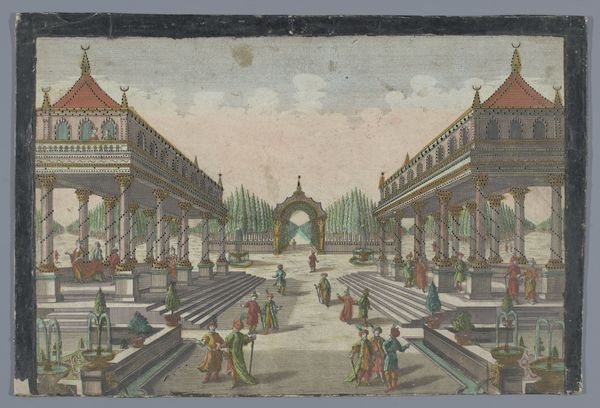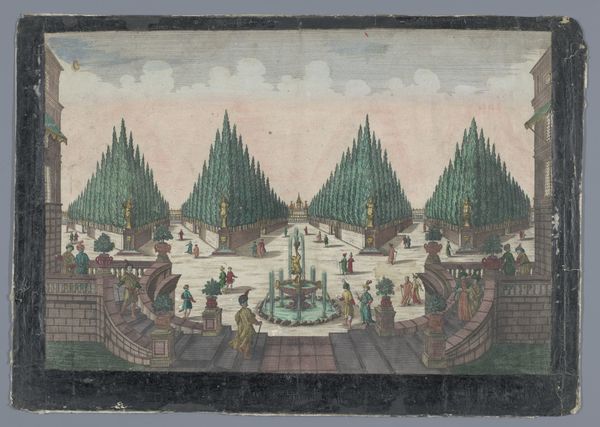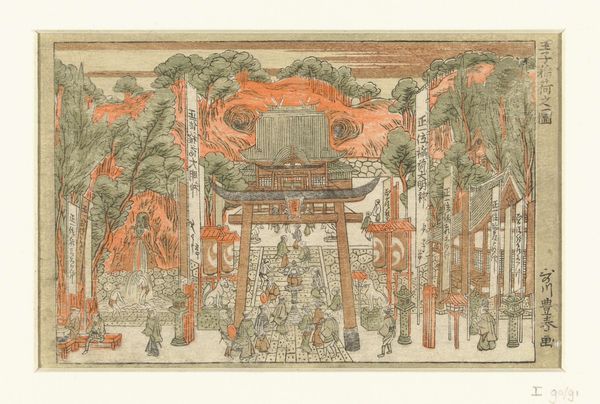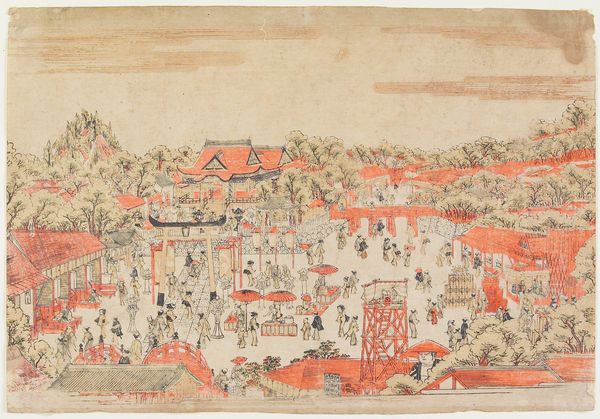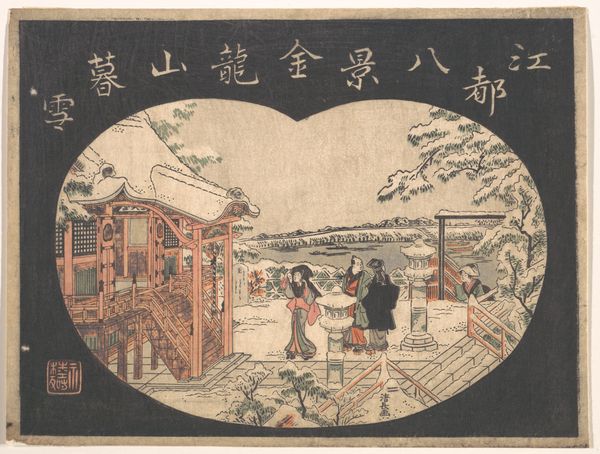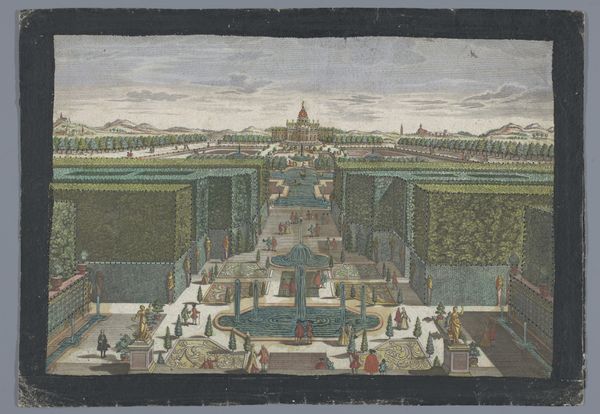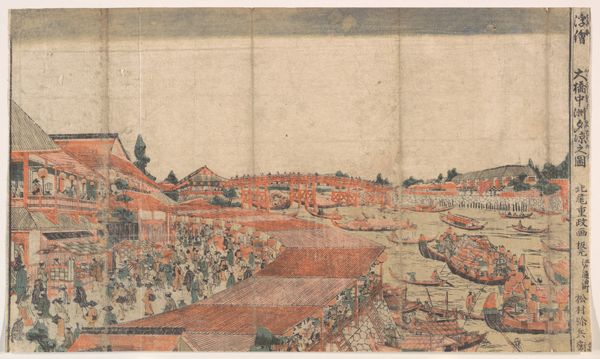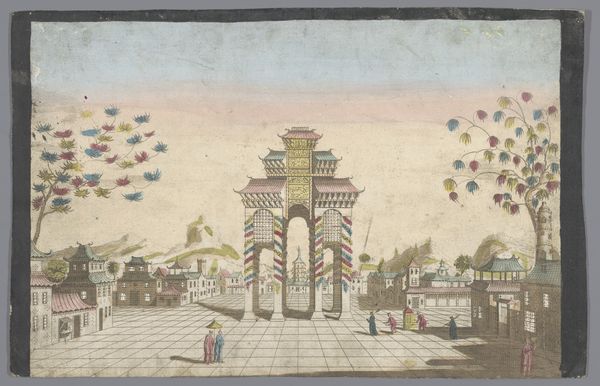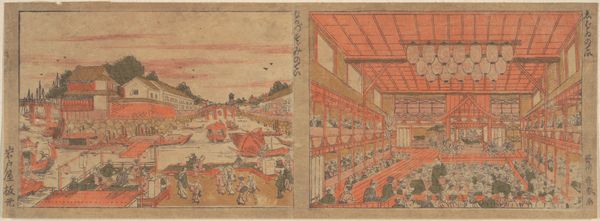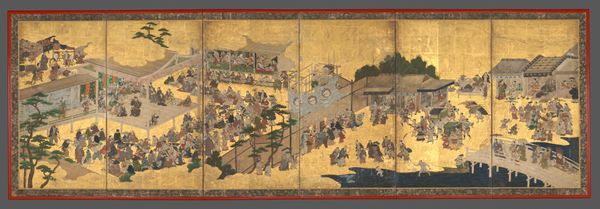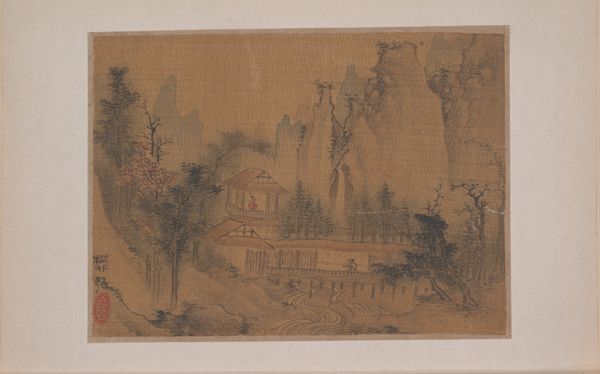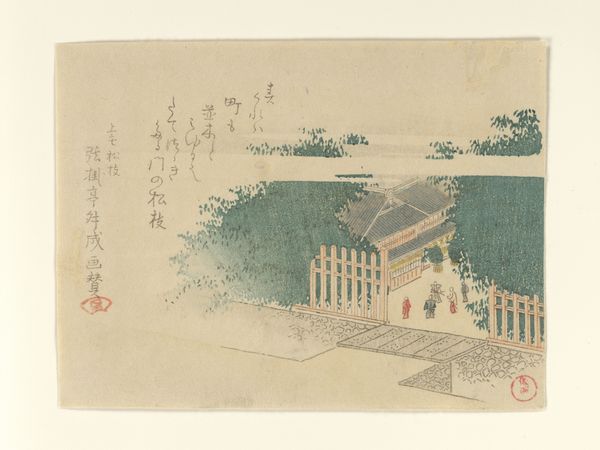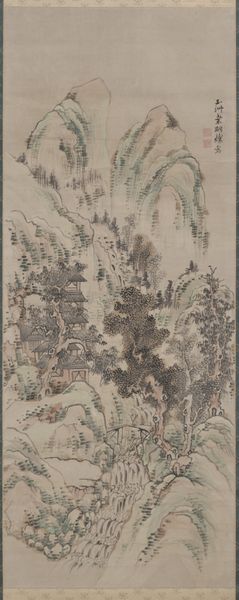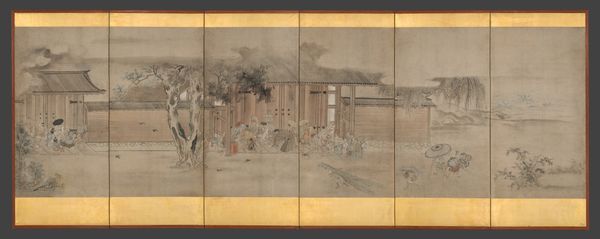
Gezicht op een laan in een cipressentuin te Constantinopel 1742 - 1801
0:00
0:00
georgbalthasarprobst
Rijksmuseum
drawing, print, etching, paper, watercolor
#
drawing
#
garden
#
water colours
# print
#
etching
#
landscape
#
perspective
#
paper
#
watercolor
#
underpainting
#
genre-painting
Dimensions: height 308 mm, width 450 mm
Copyright: Rijks Museum: Open Domain
Editor: This is "View of an Avenue in a Cypress Garden in Constantinople" by Georg Balthasar Probst, dating from 1742 to 1801. It’s a print made with etching, drawing, and watercolor on paper, held at the Rijksmuseum. I’m immediately struck by the rigid, almost theatrical perspective. What's your interpretation of this work? Curator: It's tempting to get lost in the pleasant perspective, isn't it? But let's consider the social context. Prints like these, often hand-colored, catered to a burgeoning European market for the exotic ‘Orient.’ Constantinople, now Istanbul, stood as a symbol of the Ottoman Empire. We have to ask ourselves: what fantasies about the 'East' are being constructed and consumed here? Editor: Fantasies? I see more of an idealized depiction of landscape and architecture. The artist seems preoccupied with geometry, perfect rows, symmetry. Curator: Precisely. But who gets to define ‘ideal’? Notice how the figures populating this scene are types, perhaps even caricatures, rather than individualized people. It flattens lived experiences and reduces a complex society into picturesque scenery for the European gaze. Does this image reinforce existing power dynamics of the period? Editor: I didn't really notice that. The architecture is quite amazing. But if it reduces the people into stereotypes then perhaps, it actually enforces cultural biases, depicting Constantinople from a European, and not local, point of view. It definitely creates a distance, marking who has power, and who doesn’t. Curator: Indeed. How might contemporary artists from Istanbul respond to this representation, reclaiming agency through their art? This piece invites critical dialogue around orientalism and the power of representation. Editor: I had no idea a landscape could be so charged. Now I see the image less as a beautiful vista and more as a loaded statement about cultural exchange, or the lack thereof. Thanks!
Comments
No comments
Be the first to comment and join the conversation on the ultimate creative platform.
